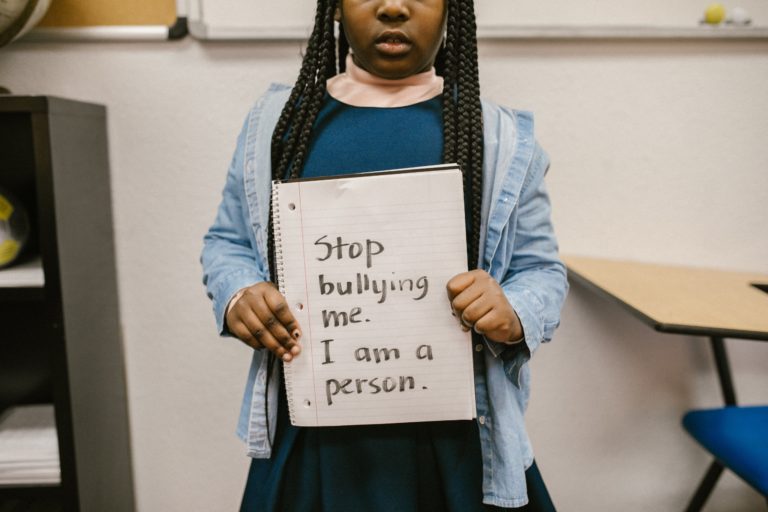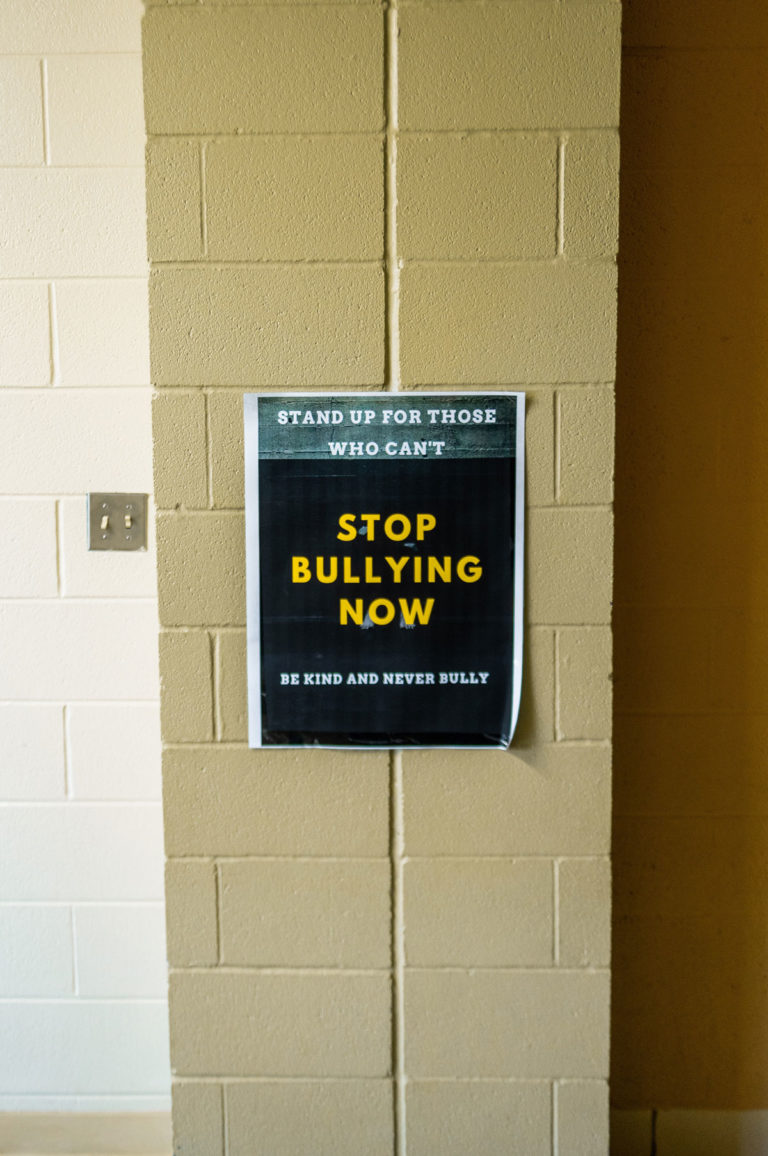Bullying
What Is Bullying
Bullying is a serious problem that affects many teenagers. It can take many forms, including physical violence, verbal abuse, cyberbullying, and exclusion from social groups. If you or someone you know is being bullied, it’s important to take action to stop it.
Here are some tips on how to stop
teenage bullying:
Speak Up: If you witness bullying happening to someone else, don’t be a silent bystander. Speak up and let the bully know that their behavior is not acceptable. If you’re afraid of getting involved directly, you can report the incident to a teacher, counselor, or other trusted adult.



Stay calm: If you’re the target of bullying, try to remain calm and composed. Responding with anger or aggression can escalate the situation and make things worse. Instead, try to stay confident and assertive while standing up for yourself.
Seek support: Don’t suffer in silence. Talk to someone you trust, such as a parent, teacher, counselor, or friend. They can provide emotional support and help you come up with a plan to address the bullying.
Get involved: Join groups or clubs at school or in your community where you can meet new people and make friends. This can help you feel less isolated and vulnerable to bullying.
Educate yourself: Learn more about bullying and its impact on individuals and society. This can help you understand why it’s important to take action to prevent and stop bullying.
Use Technology Wisely: Cyberbullying is a growing problem, especially among teenagers. If you’re being bullied online or through social media, don’t respond to the bully or engage in any online arguments. Save any evidence of the bullying and report it to the appropriate authorities or website moderators.
Remember, bullying is never okay, and everyone deserves to be treated with respect and kindness. By taking action and speaking up against bullying, you can help create a safer and more welcoming environment for everyone.
Resources To Help
There are many resources available to help teenagers who are experiencing bullying. Here are a few:
- 1. StopBullying.gov: This is a website created by the U.S. government that provides information and resources on how to prevent and stop bullying. It includes resources for parents, educators, and students.
- 2.The Trevor Project: This is a national organization that provides crisis intervention and suicide prevention services to LGBTQ+ young people who are experiencing bullying or other forms of discrimination. They offer a 24/7 hotline, text and chat services, and resources for parents and educators.
- 3.Stomp Out Bullying: This is a nonprofit organization that works to prevent bullying and cyberbullying. They offer resources for students, parents, and educators, including a helpline and a school program.
- 4.PACER’s National Bullying Prevention Center: This is a nonprofit organization that works to prevent bullying through education and awareness. They offer resources for students, parents, and educators, including a helpline and a school program.
- 5.National Suicide Prevention Lifeline: This is a national network of local crisis centers that provides free and confidential emotional support to people in suicidal crisis or emotional distress. They offer a 24/7 hotline and online chat service.
- 6.Your school counselor or social worker: Your school may have a counselor or social worker who is trained to help students who are experiencing bullying. They can provide emotional support, help you develop coping strategies, and connect you with other resources if needed.
Remember, you don’t have to face bullying alone. There are people and organizations that are ready and willing to help you.

Why People Bully
Bullying is a complex behavior and there is no one-size-fits-all answer to why people bully. There are many factors that can contribute to bullying behavior, including:

1: Personal insecurity or low self-esteem: Some people may bully others as a way to feel more powerful or in control. They may feel insecure about themselves and their own abilities, and use bullying as a way to feel better about themselves.
2: Social and cultural factors: Some cultures or social groups may place a high value on aggression or dominance, which can lead to bullying behavior.
3: Family dynamics: Children who grow up in families where there is a lot of conflict or where they are not given clear boundaries or expectations may be more likely to engage in bullying behavior.
4: Peer pressure: Some young people may feel pressure to conform to the behavior of their peers, even if it goes against their own values or morals.
5: Mental health issues: Some research suggests that people who engage in bullying behavior may be more likely to have mental health issues, such as anxiety or depression.
It’s important to remember that none of these factors excuse bullying behavior. Bullying can have serious and long-lasting effects on the mental health and well-being of the person being bullied, and it’s important to take action to prevent and stop bullying whenever possible.
Bullying Prevention
Preventing bullying requires a comprehensive and multi-faceted approach. Here are some strategies that can help prevent bullying:
Promote a positive and inclusive school or community culture: Create an environment where everyone is respected, valued, and included. Encourage students to celebrate differences and discourage exclusion or cliques.
Educate students, parents, and educators about bullying: Teach students about the negative impact of bullying and how they can prevent it. Provide resources and workshops for parents and educators on how to recognize and address bullying behavior.
Encourage students to speak up: Let students know that it’s okay to speak up if they witness bullying behavior. Encourage them to report incidents to a trusted adult, such as a teacher or counselor.
Develop clear policies and consequences: Establish clear policies that outline what constitutes bullying behavior and the consequences for engaging in it. Enforce these policies consistently and fairly.
Provide support for students who are being bullied: Provide emotional support and resources for students who are being bullied, including counseling services, peer support groups, and academic support.
Monitor social media and online behavior: Cyberbullying is a growing problem, and it’s important to monitor social media and online behavior to ensure that students are not engaging in bullying behavior online.
Engage parents and the broader community: Involve parents, community members, and local organizations in the effort to prevent bullying. Encourage them to promote positive behavior and intervene when they witness bullying behavior.
Preventing bullying requires ongoing effort and commitment from everyone in the community. By working together, we can create a safer and more welcoming environment for everyone.
Our motto is YOU ASKED FOR IT, WE LISTENED, WE GOT IT!
The importance of your input, feedback, and suggestions is critical in providing what you feel is necessary and will benefit you!
Please give us your input, which we use to provide the best services for YOU and our communities.
